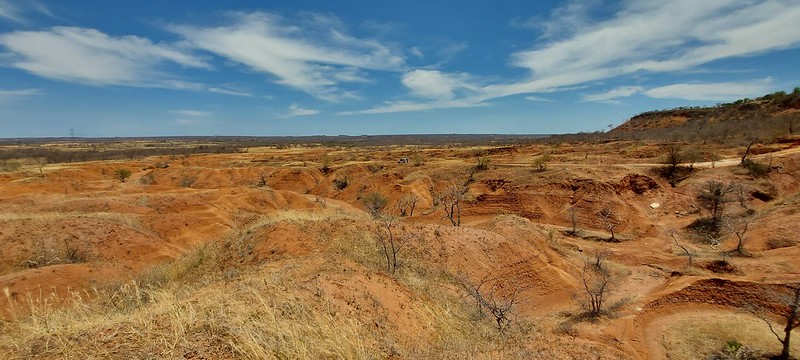Is it better to think of ecological breakdown as an event or a durable new regime?
Richard Heinberg is a senior fellow at the Post Carbon Institute and the author of fourteen books, including his most recent: “Power: Limits and Prospects for Human Survival” (2021). Previous books include: “Our Renewable Future: Laying the Path for One Hundred Percent Clean Energy” (2016), “Afterburn: Society Beyond Fossil Fuels” (2015), and “Peak Everything: Waking Up to the Century of Declines” (2010).
Cross-posted from Common Dreams

Early this month it was reported that members of the Subcommission on Quaternary Stratigraphy (which is part of the International Union of Geological Sciences), who had been tasked with adopting or rejecting a proposal to declare that we are in a new geological epoch called the Anthropocene, declined the motion. This comes after years of lobbying by many Earth scientists to formally acknowledge that humanity is in the process of changing the planet in ways that any future geologist would find obvious and undeniable.
My first reaction to the news was disappointment. I’ve been using the term “Anthropocene” for years, and had the impression that the main opposition to its formal adoption came from those who believe that humanity is incapable of changing Earth systems in ways that will make a difference for thousands or millions of years to come. Assuming that humans are too puny to alter the planet significantly is a mental pathway habitually trodden by climate change deniers, and it’s an excuse for doing nothing to avert a hellish future.
However, it turns out that the dispute among the roughly 20 scholars on the subcommission was mainly about whether humanity’s impact on Earth should be viewed as an event—like a mass extinction or an asteroid impact—or as the start of a new epoch. The majority favoured the former; and, even though the legitimacy of their decision is being questioned, I think they’re right.
Ripples from human actions during the last few decades will spread far into the future. However, the consequences of the activities that are currently having profound impacts on the climate, oceans, and biota will limit those activities, so that humanity’s industrial growth-based economy driven by fossil fuels will be mostly if not entirely gone by the end of this century. There will likely be fewer people on the planet then, and they will have far less power per capita. Earth simply doesn’t have enough resources to enable a continuation of population growth and economic expansion for much longer before a decline commences. We will have the opportunity to shape that decline somewhat—to make it more beneficial by sharing the burden of contraction, or to make it more painful by fighting over what’s left—but the techno-optimist vision of a future of ever-increasing human potency is a mere fantasy, and a dangerous one at that.
So, it’s probably better to think of the geological moment (a couple of centuries at most) of human techno-transformation and population explosion as an event—like a global conflagration—rather than a durable new regime (geological epochs tend to be several million years in duration). The results of human overshoot will persist: If there are people around 10,000 or even a million years from now, they will be able to discern residue from the 20th and 21st centuries in the stratigraphy of lake beds around the world. That’s when the Earth’s climate changed; when toxic chemicals suddenly proliferated through atmosphere, soil, and waters; when glaciers melted; when radioactive particles were dispersed by atomic weapons tests; when untold numbers of animals and plants went extinct; and when ocean currents shifted.
The generations to come will inhabit a different world indeed. Earth’s new regime, once it has stabilized, will surely be classifiable as a new geological epoch—but currently it’s too soon to name it. We’re still in the midst of the transitory event that is driving the end of the Holocene and the beginning of something else.
Perhaps it’s this event that we should be naming. I hereby nominate “The Anthropic Unraveling” or “The Great Burning” as suitable candidates for the title.
Due to the Israeli war crimes in Gaza we have increased our coverage from five to six days a week. We do not have the funds to do this, but felt that it was the only right thing to do. So if you have not already donated for this year, please do so now. To donate please go HERE.


Be the first to comment